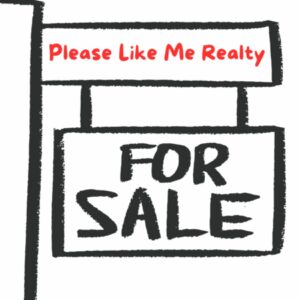 It’s entirely possible to get your clients’ homes sold for more money than similar listings, but for your clients to still think you did a terrible job. As most seasoned agents know, actually doing a good job for your client and whether your client thinks you did a good job can be two vastly different things. This is because the way that you frame expectations and communicate what you’re doing for your client is perhaps more important than the actual selling or purchasing price you obtain for them.
It’s entirely possible to get your clients’ homes sold for more money than similar listings, but for your clients to still think you did a terrible job. As most seasoned agents know, actually doing a good job for your client and whether your client thinks you did a good job can be two vastly different things. This is because the way that you frame expectations and communicate what you’re doing for your client is perhaps more important than the actual selling or purchasing price you obtain for them.
For example, if you sell your client’s Miami condo for 5% less than the price they bought it for, your client could easily think that you were not good at your job. However, condo prices in Florida have crashed over the past few years due to stringent inspection requirements and state-required safety upgrades that cost condo owners a ton of money. It’s very difficult to sell a condo in many Florida markets because everyone is trying to unload their units as they’re hit with massive special assessments. Thus, to sell a Miami condo for only 5% less than your client purchased it for six years ago might be a heroic feat as a real estate agent. If you can’t clearly communicate this crucial context to your client, they might simply tell others that you were not great to work with, and didn’t get them the price they wanted.
It’s your ability to set and manage your clients’ expectations that is going to get you glowing reviews and referrals, not the absolute price your listings sell for. If you do a great job, but communicate this to no one, it’s like a tree falling in the forest with no one to hear it… it almost doesn’t matter at all if you do a great job if you can’t communicate what you’ve done to anyone.
One important initial conversation to have with your client, whether you’re a buyer’s agent or listing agent, is about how many micro markets there are in the same neighborhood. Most clients will have read that “houses are selling for record highs” and assume that their home will sell for an unbelievable amount. It’s your ability to communicate that each property type functions in an entirely different sphere that will reframe their expectations. Condos and single-family homes are entirely different markets, even if they’re in the same neighborhood. Family homes with one bathroom are often in a vastly different market than those with two. Making sure your client clearly understands the market context in which their specific property exists is crucial to resetting their expectations.
Buyer expectations are just as important to reframe and contextualize as those of sellers. In Silicon Valley, offering $600,000 over the asking price is often not enough to get the property. Cupertino agent Tracy Hsu told Bloomberg in February that “When we write an offer, we don’t look at the asking price. It’s meaningless.” Hsu describes a property listed for $3.9 million for which her buyers insisted on offering “only” $4.5 million, against Hsu’s advice. The buyers were outbid, and lost out on the property. 
It’s easy to understand why buyers would feel that paying $700,000 over asking was a failure on their agent’s part. It’s the ability to clearly frame and contextualize how this particular market works that will make or break your reputation as an agent.
One key tactic to address this early on for a potential listing client is to ask them at first initial contact what they think their home is worth. Make this question very casual, and let them know that a ballpark estimate is fine. Don’t argue with them, and make them feel comfortable with whatever answer they provide. You can say something like “I always ask potential clients this question when we first meet, just so I can get an idea of where they’re coming from.” This way, you know what you’re up against and can prepare. Don’t wait to find out at your initial listing presentation that your client thinks their property is worth $300,000 more than it actually is. Being surprised will make you seem caught off guard and unprepared. If you already know that your client has vastly over- or under-valued their home, you can put together a targeted group of comps to quickly shift their thinking regarding price, rather than being on your back foot without any research to support your opinion.
Being prepared with specific, targeted information will create trust early on, and puts you in the driver’s seat. Carefully and thoughtfully explaining the exact market your clients are buying or selling into will help them see past the numbers, and see that you are really getting them the best deal you can. Remember, only $700,000 over asking might be a screaming deal, and your clients won’t understand this unless you’re able to carefully and sensitively explain this context to them.
https://www.habitatmag.com/Publication-Content/Co-op-Condo-Buyers/2025/March-2025/manhattan-condo-co-op-prices
https://www.mansionglobal.com/articles/selling-a-dream-home-can-be-a-nightmare-too-much-personality-can-kill-a-sale-6e94b12c
https://liveinlosgatosblog.com/los-gatos-real-estate-statistics/
https://www.bloomberg.com/news/features/2025-02-26/silicon-valley-s-hot-housing-market-fuels-bidding-wars
(866) 519-9597



